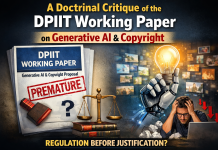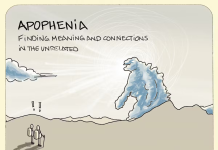The Delhi High Court’s recent decision in Samir Kasal v. Prashant Mehta delved into the question of copyrightability of cricket. It also delved into the legal principles of breach of confidentiality, while also demotivating plaintiff’s intention to cause harm to the defendants by approaching the Court at the nick of time. Facts of the order, notable observations of the Court along with its analysis are put forth below.
Brief Facts of the case
The Plaintiff, Mr. Samir Kasal, claimed to be a well-known personality, having experience in the Sports, Entertainment and related industries. He had handled various entertainment events and has managed various teams of the Indian Premier League like Rajasthan Royals and Deccan Chargers. Owing to the expertise and experience in the field of cricket, the plaintiff, conceptualized an International Cricket League, having two teams which shall consist of retired world cricket legends and having a play format of T-20 but with a twist that each team will have two innings, just like a test match of 10 overs. The plaintiff along with defendant No. 1, Mr. Prashant Mehta developed the idea and named the league as ‘Legends Premier League’.
To bring in investors for the Cricket league, defendant No. 1 introduced the idea of the league to the Defendant No. 2 in confidence. Defendant No. 2 having experience in hosting events in sports amused by the concept, came on board with the Plaintiff and Defendant No. 1. They were in regular communication regarding the events of the Legends Premier League. They produced and approved draft agreements which were to be signed by the players. Further, they discussed to form a company and even decided on the shareholding of the said company. However, due to the Covid-19 pandemic that raged the world, no tournament could be organized in 2020 and 2021.
Interestingly, Defendant No. 2 in the meantime changed his mind and secretly desired to form a new company. Initially, defendant No. 1 was also included in the new company, however, he was dishonestly usurped from the company and defendants No. 2 to 4 were treating him unfairly. Defendants No. 2 to 5 had the intention to organize cricket matches in which retired legendary players would play and they named the league as ‘Legends League Cricket’, however there were differences between the tournament of the plaintiff and that of defendants. The plaintiff learnt about this from various media reports in November, 2021 and issued a legal notice in December 2021 to the defendants and finally instituted the suit before the Hon’ble Delhi High Court only a few days before the tournament was about to start.
Issues before the Court
There were primarily three issues that needed consideration by the Hon’ble High Court. These include:
- Whether the concept of conducting a cricket league with a particular format can be copyrighted? Or in general can cricket be copyrighted?
- Whether there was a breach of confidentiality by Defendant No. 2?
- Whether there was delay by the plaintiff in approaching the Court?
Cricket and Copyright
On the first issue, whether the plaintiff can claim copyright over the format of cricket, he wished to host, the Hon’ble High Court delved into the question that whether there is a ‘work’ within the meaning of the Copyright Act, 1957 (‘the Act’), in respect of which the plaintiff can assert copyright. According to the Copyright Act, ‘work’ shall include
- A literary, dramatic, musical or artistic work;
- A cinematographic film;
- A sound recording;
The subject on which the plaintiff asserted copyright does not fall within the definition of work as defined under the Act. Moreover, the Court said that plaintiff’s argument that the defendants have forged the idea of the plaintiff to use it as a ‘springboard’ for their commercial advantage does not hold true as the plaintiff as well as the defendants were experienced in organizing IPL matches. Thus, the developments happening in the field of cricket were not hidden from any of them.
The Court has rightly concluded that the idea of the plaintiff to organize a cricket tournament cannot be considered ‘work’ as per the Copyright Act, 1957. This argument can be bolstered by relying on two joint judgments of the Court of Justice of the European Union (CJEU) titled Football Association Premier League v. QC Leisure and Karen Murphy v. Media Protection Services Limited. Unlike the instant case, these two cases dealt with copyrightability of football. In these cases, the CJEU held that Football Association Premier League cannot claim copyright in the Premier League matches themselves, as they cannot be classified as work. Furthermore, sporting events in general cannot be regarded as intellectual creations classifiable as works. Sporting events are subject to rules of the game, leaving no room for creative freedom for the purposes of copyright.
Moreover, there were vast differences that the Court laid down between the tournament of the plaintiff and that of defendants. For instance, the names of the league were different, the formats were different, and the number of teams was different. After scrutinizing the differences, the Court concluded that there are broad dissimilarities between the works which negative the intention of the defendants to copy the concept then there will be no infringement. Thus, the Court said that even if it is assumed that the plaintiff has some sort of right in his concept then also there were various dissimilarities between the format that the plaintiff conceptualized and the format on which the defendants were planning to host the cricket tournament.
The Court’s decision that since there are broad dissimilarities between the tournaments of the plaintiff and that of defendants, there can be no infringement of copyright can be further bolstered by relying on the Supreme Court’s judgment in R.G. Anand v. M/S Delux Films. In this case it was held that “where however apart from the similarities appearing in the two works there are also material and broad dissimilarities which negative the intention to copy the original and the coincidences appearing in the two works are clearly incidental no infringement of the copyright comes into existence.” This has been reiterated by the Division Bench of the Delhi High Court in Fritco-Lay India v. Uncle Chipps Private Limited.
Conclusively, the Court observed that the only similarity between the two formats is the ‘game of cricket’ and no one can claim a copyright to the ‘game of cricket’. Moreover, there can be no copyright on various permutations and combinations in the format of playing the game of cricket which can evolve over a period of time.
Breach of Confidentiality
On the second issue, whether there was a breach of confidentiality by Defendant No. 2, it was observed that confidentiality would depend on the nature of information being shared by the plaintiff. In the instant case, the plaintiff disclosed the information of organizing the tournament in confidence, however, this sharing of information cannot prohibit the defendants to organize a cricket tournament indefinitely. Thus, it was held that confidentiality cannot be permitted to continue indefinitely, thus there was no breach on the part of Defendant No. 2.
However, the court has not provided concrete reasons for concluding that confidentiality cannot be permitted to continue indefinitely. The author still finds the decision of the Court to be correct. The reasons of the author are twofold. Firstly, it is well settled principle of law that there is no breach of confidentiality if the information is in public domain. This argument can be fortified by relying on the judgments of Beyond Dreams Entertainment v. Zee Entertainment and M/S Stellar Information v. Mr. Rakesh Kumar. In the instant case as well, the format of match that the plaintiff disclosed to the defendants was available in the public domain. Moreover, the defendant No. 2 being experienced in the management of sports events himself knew about the format that the plaintiff was planning on hosting. Thus, the information shared by the plaintiff was in the public domain, so there could be no breach of confidentiality.
Secondly, the Division Bench of the Delhi High Court in Sungro Seeds Ltd. v. S.K. Tripathi opined that “confidentiality and secrecy obligations can only be with respect to a right which the person is entitled to protect.” In the instant case, since the plaintiff has no copyright in the concept of the tournament as held by the Court, he cannot protect it and thus, there can be no confidentiality obligation on the defendants to protect it.
Last-minute Injunctions
On the third and the last issue, whether there was delay by the plaintiff in approaching the Court, it was observed that the plaintiff came to know about the intention of the defendants in November 2021, but the plaintiff approached the Court only a few days prior to when the tournament was about to start. It was held that by approaching the Court at the nick of the moment, the plaintiff has attempted to cause greater harm to the defendants than benefit to himself. Thus, the ‘balance of convenience’ lies in favour of the defendants.
It is pertinent to note here that there are various precedents which highlight the intention of the plaintiff to cause harm to the defendant by approaching the court at the nick of time. The Delhi High Court in Vinay Vats v. Fox Star Studios held that there was “no justification for the plaintiff having approached this Court on the eve of the release of the film” and considered it an example of “misuse of the judicial process”. Furthermore, the Bombay High Court in Dashrath D. Rathod v. Fox Star Studios held that a last moment filing is “clearly an attempt to pressurize the defendants into making a statement or to pressurize the court to pass a hurried pro-tem order without an assessment on merits which gives an unfair advantage, and the plaintiff who waits till the last moment must face the consequences of such a delay.” (For further analysis read Akshat’s post here).
Conclusion
The motive of Copyright has always been to increase authorship and also to increase the knowledge of public. The Delhi High Court by dismissing the applications has tried to protect the motive of Copyright as in case cricket would have been given copyright protection, it would have made playing and hosting of the game less accessible in a country where the game is played in every street. Further, the Court’s insistence on the plaintiff’s intention to cause harm to the defendant should serve as sufficient warning for litigants who try to misuse the judicial process.
Image source: here




![Image[60]](https://iprmentlaw.com/wp-content/uploads/2022/02/Image60-300x300.jpg)






